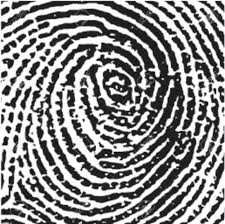Institutional Collaborations

The UNESCO 1970 Convention - Counter Antiquities Trafficking in the Mashreq
Within the framework of the UNESCO 1970 Convention addressing the illicit trafficking of cultural property, and emphasising the particular needs of source countries impacted by conflict, UNESCO, in collaboration with the Association for Research into Crimes against Art (ARCA) organised in Beirut, Lebanon a capacity-building activity entitled “Countering Antiquities Trafficking in the Mashreq: A Training Program for Specialists Working to Deter Cultural Property Theft and the Illicit Trafficking of Antiquities” funded through UNESCO’s Heritage Emergency Fund. Focused on improving internal, cross-border, and sub-regional cooperation in and between member countries’ heritage professionals this training aimed at developing a more collaborative approach to address the illicit flows of cultural property and to strengthen professional capabilities and means of control in key source and transit countries, the training provided technical assistance to 31 multidisciplinary trainees from five beneficiary countries in the Mashreq region: Iraq, Jordan, Lebanon, Syria, and Turkey. These countries suffer from the proliferation of illicit trafficking of cultural property and have seen their border transit points capitalised on by traffickers, who attempt to move plundered heritage to lucrative art market countries in Europe and elsewhere.
Recognising the indispensable role of international cooperation in crime prevention and criminal justice responses to counter the trafficking, as set out in the United Nations Security Council Resolution 2347 (link is external)(2017) and 2199 (link is external)(2015), the training activities brought together national and international experts from UNESCO, ARCA, INTERPOL, UNIDROIT, UNODC, and ICOM-Lebanon. They stressed the importance of improving international, cross-border and regional cooperation among heritage personnel, customs, law enforcement, intergovernmental and nongovernmental organisations. By providing a platform for stakeholders in source countries to identify existing gaps in their knowledge, practice, and legislative and judicial systems, the training helped to strengthen preventive measures.

The 1995 UNIDROIT Convention Academic Program (UCAP)
UCAP endeavours to promote a favourable legal environment for restitution and the return of stolen or illegally exported cultural objects through knowledge sharing and dissemination particularly as they relate to the 1995 UNIDROIT Convention on Stolen or Illegally Exported Cultural Objects and the 2011 UNESCO-UNIDROIT Provisions on State Ownership of Undiscovered Cultural Objects. The Project also seeks to assist scholars, students, practising lawyers, judges, other government officials, as well as art market actors through education. By bringing together vital research made by research entities and universities as well as holding courses in the field of cultural heritage, UCAP increases awareness and understanding of the 1995 UNIDROIT Convention.

International Foundation for Art Research (IFAR)
An educational and research organization dedicated to integrity in the visual arts. As a service organization working at the intersection of art scholarship, art law, and the public interest, IFAR fills the need for an impartial, authoritative body to provide information on issues relating to art law and ethics; attribution/authenticity/fraud; and theft, looting and restitution. IFAR works with varied art world communities (museum, academic, legal, collecting) and acts as a bridge between them and the public.
